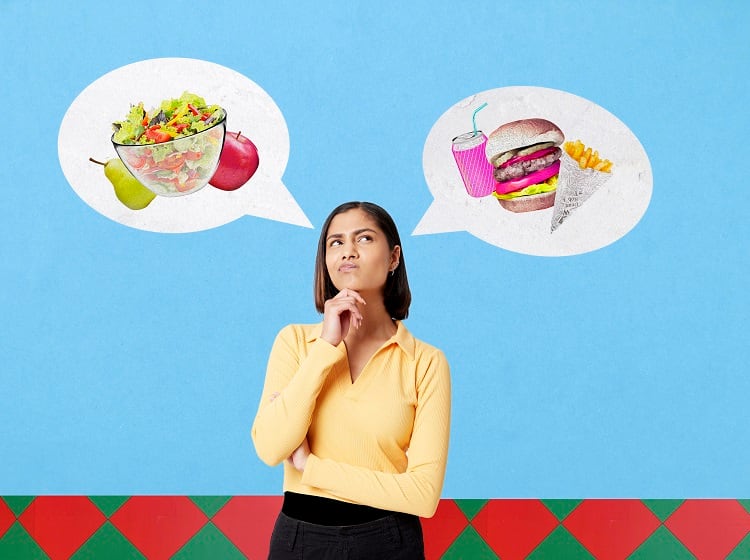UPF impact on health and industry
- Study links UPF with a 10% higher mortality risk among high consumers
- Processed meats and soft drinks most strongly associated with increased mortality
- 65% of European consumers believe UPFs are unhealthy
- Industry faces pressure to reduce processing and additives, though challenges remain
- Experts call for clearer communication around the benefits and risks of food processing
Ultra-processed foods (UPF) have dominated news headlines across industry and mainstream media for over a decade now. And the stories are rarely positive.
From links to type 2 diabetes and early symptoms of Parkinson’s disease, to a landmark report from the World Health Organization (WHO) likening their consumption to smoking and drinking alcohol, the bad news just keeps coming.
And all this has, unsurprisingly, led consumers to believe ultra-processed foods are bad for their health and the health of the planet.
“The majority (65%) of European consumers believe that ultra-processed foods are unhealthy, and that they will cause health issues later in life,” says a spokesperson for EIT Food.
So, it’ll come as unwelcome news that a new study is now linking ultra-processed foods to early death.

UPF linked to early death
A major new study suggests that older adults who eat a high volume of ultra-processed foods may face a higher risk of dying earlier.
In fact, researchers found that people who consumed the most processed foods were around 10% more likely to die over the next two decades, compared to those who had consumed the least.
The study followed more than half a million adults, aged 50-71, for nearly 30 years, making it one of the largest of its kind.
More than half of the participants have since died. Scientists compared death rates between those who ate the most ultra-processed foods and those who ate the least, while also looking at which types of processed foods might be most harmful.
“We observed that highly processed meat and soft drinks were a couple of the subgroups of ultra-processed food most strongly associated with mortality risk, and eating a diet low in these foods is already recommended for disease prevention and health promotion,” says Dr Erikka Loftfield, Stadtman Investigator at the National Cancer Institute.
The research team used multiple strategies to classify the level of processing for various food items, including breaking down food frequency questionnaire data into particular food and ingredient types.
They also accounted for other factors that can increase a person’s risk of death, such as smoking and obesity.
Results showed that eating more ultra-processed foods was linked to a small but noticeable increase in deaths from all causes, especially from heart disease and diabetes. However, no clear link was found with cancer-related deaths.
“Our study results support a larger body of literature, including both observational and experimental studies, which indicate that ultra-processed food intake adversely impacts health and longevity,” says Dr Loftfield.
Dr Loftfield goes on to explain that there is still a lot we don’t know, including exactly what aspects of ultra-processed foods pose potential health risks.

What does this mean for industry?
Though the results of this research are negative, they don’t provide enough information on exactly how ultra-processed foods could shorten a person’s life. This makes it difficult for industry to act on.
However, increasingly negative chatter surrounding UPF shows the strength of consumer concern over potential health implications, so cutting back on processing methods is likely to prove popular.
“It would be tempting to think that the current UPF furore will quickly die down,” says Alice Pilkington, senior global food and drink analyst at Mintel. “However, that many Europeans do not think it’s just another healthy eating fad, demonstrates the need for food and drink brands to take this seriously.”
She goes on to say that the UPF focus is arguably a “watershed moment” for the industry.
Having said that, there are situations where reducing processing levels are simply not possible, and in those cases, manufacturers are urged to better communicate the benefits of ultra-processing. These include longer shelf life, increased food safety, improved affordability, and reduced food waste.
What’s more, many are confused about the Nova classification system, which places all ultra-processed foods - whether healthy or not - in the same category.
These include yoghurts, wholegrain breakfast cereals, wholemeal breads, and baked beans.
“There is a wide and confusing array of information on ultra-processed food, some of which is conflicting and some that is simply misinformation,” says Klaus Grunert, professor at Denmark’s Aarhus University and director of the EIT Food Consumer Observatory.
Professor Grunert also says the lack of nutritional information provided to consumers in relation to ultra-processed foods is, “preventing them from making informed choices”.



